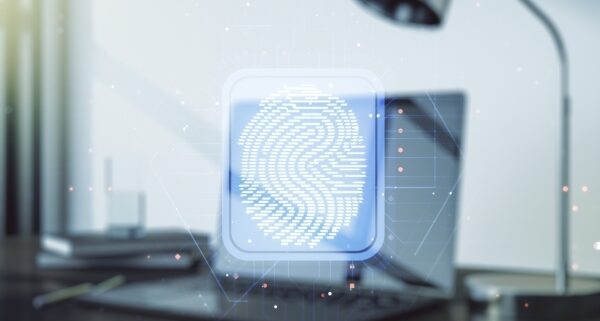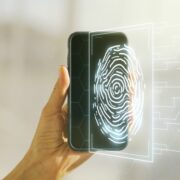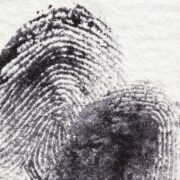Is Electronic Fingerprinting Acceptable In Florida?
Electronic fingerprinting is becoming increasingly important in Florida as more employers, government agencies, and educational institutions require individuals to have their fingerprints scanned. Electronic fingerprinting is a critical component of the process, from background checks to License and certification applications.
Understanding the basics of electronic fingerprinting in Florida is essential for anyone who needs to submit their prints. This article will explain why electronic fingerprinting is required and what you need to know before submitting your prints.
It will discuss the different types of electronic fingerprinting available, the process for submitting your prints, and the associated costs. With this information, you can be sure to have a smooth experience when submitting your fingerprints.
What Is Electronic Fingerprinting?
Electronic fingerprinting involves placing your fingerprints onto a scanner. The scanner is connected to a computer that records your prints. You can send your prints to a company that provides background screening and employment verification.
Electronic fingerprinting is different from traditional or ink fingerprinting in that it uses a scanner to obtain information instead of ink or a paper print.
Why Is Electronic Fingerprinting Used In Florida?
Employers in Florida may require electronic fingerprinting when conducting a background check or other employment screening. Government agencies may also need it.
For example,. The state department of education also uses electronic fingerprinting for student certification. Electronic fingerprinting is also used for a variety of other reasons.
Some people choose to submit their fingerprints as part of a process to obtain a license or to apply for public benefits like Medicaid or food stamps. Others may choose to have their fingerprints collected to apply for a job, public housing, or student housing.
Types Of Electronic Fingerprinting In Florida
These electronic fingerprints are called “digital” fingerprints because they are saved as electronic information instead of printed on paper. You can also have “hybrid” electronic fingerprints.
This type of electronic fingerprinting combines the information from both your digital and ink fingerprints. You may also be able to have “digital only” electronic fingerprints if you do not meet one of the requirements for having a hybrid signature. Some states, such as Florida, only allow digital fingerprinting.
How Do You Utilize Electronic Fingerprints?
To utilize electronic fingerprints in Florida, you must have a valid license or certification issued by the Department of Business and Professional Regulation (DBPR).
This is required to ensure the quality and accuracy of fingerprints collected through this method. After obtaining a license or certification from DBPR, your organization can begin utilizing digital scanning devices to collect biometric data from applicants or employees.
Electronic Fingerprinting In Florida
In Florida, all collected fingerprints must be submitted to the Florida Department of Law Enforcement (FDLE) for a statewide criminal history check.
The FDLE ensures that all fingerprinting is performed in compliance with state regulations and laws. Additionally, employers must obtain consent from an applicant or employee before collecting biometric data, such as fingerprints.
Once submitted to the FDLE, the organization requesting the background check will receive results within a few days. This is much faster than manual ink-and-roll processes, which typically take up to eight weeks or longer.
This law enforcement agency is also responsible for ensuring that any collected data is securely stored and is not shared with anyone other than the requesting organization.
1st Choice Fingerprinting Services
1st choice’s fingerprinting services are acceptable in Florida. We use the most up-to-date electronic fingerprinting technology and certified enrollment agents licensed by the state to provide fast, reliable results that meet both the state and federal requirements.
We also offer mobile services for clients who cannot come to our offices. Our mobile staff is trained and equipped with the same technology and procedures used in our offices for taking fingerprints.
Our clients are always provided with a copy of their receipt and results the same day of service, as well as a detailed invoice for their use in filing reports with local agencies. We also provide an online tracking system that allows clients to view their status updates quickly and easily.
The Process For Submitting Fingerprints
The Florida AHCA Background Fingerprint Screening Program requires that all applicants submit to a state and FBI criminal background check. The process of submitting fingerprints for the purpose of obtaining criminal history record checks is relatively straightforward.
The first step in obtaining a background check through fingerprinting is to complete the Application for Live Scan Service, which can be found on the AHCA website or obtained from your local law enforcement agency.
The applicant must provide the correct name, date of birth, Social Security number, and other identifying information. The Application for Live Scan Service also contains instructions on how to send fingerprints electronically to the Florida Department of Law Enforcement (FDLE).
Once the application is complete and submitted, FDLE will issue a Transaction Control Number (TCN). The TCN identifies the fingerprints submitted and is used to track the results of the background check.
FDLE will provide written instructions for obtaining ink fingerprint cards from your local law enforcement agency. Once the ink fingerprint cards are completed, they must be mailed to FDLE along with a money order or certified check made payable to the “Florida Department of Law Enforcement”.
Once FDLE has received the ink fingerprint cards, they will undergo a processing and review period which typically takes several weeks. Upon completion of their review, FDLE will generate a final report containing the applicant’s criminal history record information. The applicant will be notified directly with the results of their background check.
It is important to note that the AHCA may deny a license or certification based on the results of an individual’s background check. It is therefore best to ensure all information submitted with the Application for Live Scan Service and ink fingerprint cards is accurate and up-to-date, as any discrepancies could potentially delay or prevent licensure or certification approval.

Cost Of Electronic Fingerprinting In Florida
The cost of electronic fingerprinting in Florida can vary. It may also depend on which service provider is used as well as other factors such as the number of applicants or any additional services that may be needed.
With 1st Choice, the cost of electronic fingerprinting includes both the pre-enrollment process and the actual processing of fingerprints. There are also additional charges that may apply if you need to be rescheduled or need an expedited service such as same day results.
Your fingerprints can be taken digitally and printed onto an official FINGERPRINT CARD. We provide blank Form FD-258 fingerprint cards and also offer fingerprint processing using digital capture and printing on FBI standard fingerprint cards using the Ink & Roll method for use outside of the state. We use a digital method that eliminates the need for paper and ink, as well as any resulting cleanup hassles.
When you print with Secureone, you get free access cards. Your own fingerprint cards must be either the FD-258, both of which are accepted by the FBI. Card costs are $5 apiece after the first two are printed for a total of $20 per roll.
Preparing For Your Fingerprinting Appointment
Before you go to your fingerprinting appointment, find out if you need to bring any documents with you to the fingerprinting station. The station may be different than where you get your temporary ID.
On your first fingerprint submission, you will need to provide your ID, Social Security number, and any other documents required by the FDLE.
Most fingerprinting stations will have signs indicating what documents are required and where to find them. If you are still looking for the signs, ask the person at the desk where to find the signs.
To ensure the accuracy of your fingerprints, it is a good idea to bring a pen and paper with you to the fingerprinting station. You can use the pen to make changes to your digital or ink prints or write on paper to use later as an identification card.
The requesting state agency is responsible for paying for the cost of fingerprinting.
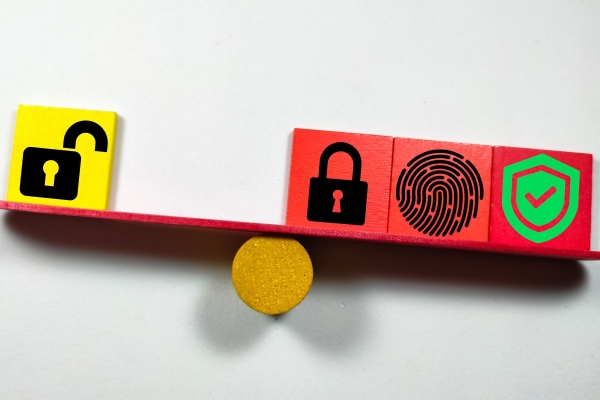
Privacy Considerations For Electronic Fingerprinting
Electronic fingerprinting is different from traditional fingerprinting in several ways:
- It uses a scanner to obtain information instead of ink or a paper print.
- The data is saved electronically.
- The information is shared with third parties, including private companies that perform background checks.
Electronic fingerprinting has privacy concerns, especially when done at commercial businesses. One problem is that the information is shared with third parties, even if you request to keep your information private. This information can then be seen by the companies performing background checks.
The Federal Bureau of Investigation (FBI) monitors electronic fingerprinting. They have strict rules on how the information is used and who can access it.
Ways To Get Help With Electronic Fingerprinting
If you have questions about the types of electronic fingerprinting available and the process for submitting your fingerprints, you can call the staff at 1st Choice Alternatively, you can visit a nearby library or bookstore to look up an informative book on the subject. You can also search online for information to help you prepare for your fingerprinting appointment.
Ensure you understand the process and any requirements for electronic fingerprinting before heading to your appointment. Failing to follow the process may result in your fingerprints being rejected, or you may have to wait longer to complete the fingerprinting process.
You can also head to a Florida electronic fingerprinting site for assistance. These locations are staffed by technicians who can help you with the process and answer any questions about electronic fingerprinting in Florida.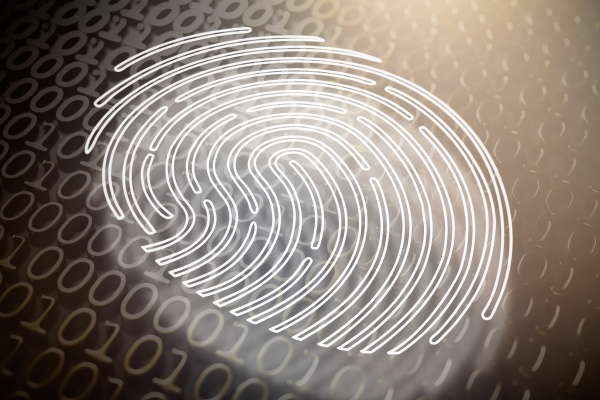
Conclusion
In conclusion, is electronic fingerprinting acceptable in Florida? Yes, but you should always be aware of the privacy considerations when you submit your fingerprints electronically.
Electronic fingerprinting is a crucial part of doing a criminal history background check, obtaining a medical card, or certifying for a student loan. Knowing what to expect and what documents are required for these processes is important.
Overall, electronic fingerprinting is an acceptable background screening method in Florida, provided you have obtained proper licensing and certification from the DBPR. You have obtained consent from applicants or employees before collecting biometric data such as fingerprints.
The process is also much faster than traditional methods, which can take up to eight weeks or longer to receive results.

